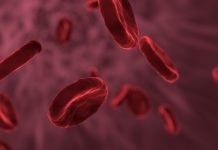INTRODUCTION:
ADHD or Attention-deficit/hyperactivity disorder is a brain disorder marked by an ongoing pattern of inattention and hyperactivity-impulsivity that interferes with brain functioning or development. It is common in children and could go on until adulthood if not curbed at the early stage.
WHAT IS ADHD?
Attention Deficit Hyperactivity Disorder, ADHD is one of the most common behavioral disorders that develop in children. It is a mental disorder of a neurodevelopmental type
ADHD becomes apparent in some children in the preschool and early school years. It is estimated that three (3) and seven (7) percent of children have ADHD. It is a serious medical condition that makes the person suffering from it has differences in brain development and brain activity. It is characterized by problems of paying attention, hyperactivity, impulsivity, and difficulty controlling behaviors.
It is one of the most common diseases affecting children but it is not as common in adults. An estimated 5 percent of children and 2.5 percent of adults have ADHD. It occurs more to the male children than the female, and is identified during the early school years when children start having ugly issues in classrooms or problems with school works.
CONSIDER READING: 5 Beauty Tips To Clean Up Oily Skin At Home.
The symptoms of ADHD appear in an individual before the age of twelve, and are present for over six months. ADHD can affect a child in at least two settings such as the school, at home, in friendships, or recreational activities. As mentioned earlier, ADHD causes problems in paying attention and it leads to poor school performance in children.
ADHD affects children and teens alike and can continue to adulthood. In adults, ADHD may cause them to have trouble staying organised, setting goals, managing time, or even keeping a job. Problems also occur in relationships, friendships, self-esteem, and addiction.
CAUSES OF ADHD:
Scientists have not yet identified the causes of ADHD. But there are reliable evidences that say individuals living with ADHD inherited it either from their parents or relatives
ADHD is said to improve when the child gets treatment, eat healthy food, get enough sleep and exercise, and have supportive parents who know how to respond to ADHD.
CONSIDER READING: Top 6 Rare Allergies You May Not Know Of.
SIGNS AND SYMPTOMS OF ADHD IN A CHILD:
It is not uncommon for a kid to struggle to pay attention, but still, or listen and follow instructions. But this is different with kids with ADHD. They struggle harder and it occurs more often than normal in kids without ADHD.
There are three categories in which kids with ADHD can be categorized, They are:
Inattentiveness:
Kids who are inattentive have trouble paying attention and are easily distracted. They lack concentration and do not often stay on a task.
Symptoms of the inattentive type:
– They do not pay close attention or none at all to details which prompts them to make mistakes often.
– They lack concentration and do not often stay on a task or activities.
– They do not seem to listen when spoken to. Their mind seems to be somewhere else.
– Instructions and assignments are often neglected by individuals in this category. They do not follow instructions and do not complete schoolwork or chores.
– They have trouble assembling and organizing a task. This stresses the aspect of time management. They waste time on a task, thereby missing deadlines, and often come out with a messy and disorganized work.
– They also try to avoid tasks that require mental efforts like preparing reports. And often lose things needed for daily tasks such as books, keys, school papers, and so on.
– One of the main points is that the individuals are easily distracted. They often lose focus.
– They forget their assigned tasks.
CONSIDER READING: How Successful Men Stay Mentally Strong in Tough Times.
Hyperactivity:
Kids in this category also fidget, feel restless and get bored easily.
Symptoms of hyperactive kids:
– They fidget easily, tap their hands or feet, or move unsteadily on their seats.
– They have trouble staying still.
– Run about or climb where it is not appropriate.
– They are unable to do leisure activities quietly.
– They seem to stay on the alert for everything.
– They are loquacious; they talk too much.
– They tell answers before the questions were completed and they are always on the edge to speak in conversations. This makes them interrupt without permission.
– There is a difficulty of not waiting for turns.
Impulsivity:
Impulsivity has to do with kids doing thing without careful thoughts.
Symptoms of impulsive kids:
– They act too quickly before thinking.
– They tend to interrupt, push or grab because they find it to tasking to wait.
– They may do some things on their own accord without permissions.
– They exhibit emotional reactions that seem too much for the situation at hand.
– They also may take the thing that does not belong to them or even take risky steps to get their wants.
CONSIDER READING: 8 Insane But True Facts About Squeezing Pimples.
These signs are often noticed by parents and teachers when kids are young. But it doesn’t always mean a child that is restless, impatient or impulsive is suffering from ADHD. Kids learn to pay attention, develop self-control, and learn other things as they grow. But some kids as well do not get much better at paying attention, listening or completing a task. This category could be said to have ADHD.
WHAT HAPPENS WHEN ADHD IS NOT TAKEN SERIOUSLY:
When ADHD is not treated, it can be hard for kids to succeed. It can be hard for kids to succeed if ADHD is not treated. It may cause low self-esteem, failure in school, anxiety, depression, addiction to alcohol or drugs, risk-taking behavior, or family conflicts. The serious impact continues throughout adulthood if it is not treated.
TREATMENTS OF ADHD:
Medical Care:
There are cases where therapeutic approaches like the environmental restructuring and behavioral therapy alone proved effective. Development in behavioral parent training (BPT) and behavioral classroom management (BCM) have also been useful. Moreover, behavioral psychotherapy is often successful when combined with an effective medication regimen. There are some stimulants that could be of immense help. Some of the stimulants represent the best first-line therapeutic option for adults with ADHD. For related areas of functioning such as social skills and academic performance, medications combined with behavioral regimens may be indicated. Pharmacotherapy includes the following: Stimulants such as methylphenidate, dextroamphetamine. As regards medication for ADHD, stimulants are probably the most effective treatment.
All the stimulants have similar efficacy but differ by dosing, duration of action, and adverse effects in individual patients. Care should be made to start at the lowest dose and rotate up for clinical efficacy or to intolerance.
CONSIDER READING: 5 Easy And Natural Ways To Prevent Breast Sagging.
There are several stimulants that come in sustained release preparation which may decrease the number of total daily doses. Otherwise, dosing should be spaced every 4-6hours. Care also should be taken to not dose too close to bedtime because stimulants may cause insomnia.
Other adverse effects include appetite suppression and weight loss, headaches, mood effects like depression and irritability. Stimulants also worsen tics in children with underlying tic disorders.
It is unclear if the stimulants taken might affect growth in a child or not. Drug holidays may or may not be recommended to allow periods of normal growth. The decision is based on the growth of the child and behavior and also cognition off medication.
People are concerned that the use of stimulate therapy could lead to substance abuse. Recent studies have demonstrated that stimulant therapy does not increase the risk of future substance abuse. Take for instance, 112 people living with ADHD were observed for a period of 10years. 82 (73%) had been treated previously with stimulants by the time of the follow up assessment and 25 (22%) we’re undergoing stimulant treatment. There is no statistically significant association noticed between stimulant treatment and alcohol, drug, or nicotine use disorders. There’s not a single evidence that states that stimulant medication increases OT decreases the risk for subsequent substance use disorders in children and adolescents with ADHD when they grow of age. Stimulant treatments enhance mental executive functions for those with ADHD.
CONSIDER READING: You Need To Start Reading To Believe How Books Can Improve Your Memory.
Other Medications:
The treatment that is seen as a second line or in some cases first line treatment for patients of ADHD is the Atomoxetine because of its effectiveness and also classification as a non-stimulant. We have studies that says that the overall effect of atomoxetine (starter) has not been as extensive as that reported of stimulants.
There are statements that suggest that bupropion or even venlafaxine may be effective. Dosages are similar to those used to treat depression. We also have some tricyclic antidepressants that have been found efficacious in several studies. The antidepressants are: imipramine, nortiptyline and desipramine. However because of the potential adverse effects, they are rare used for this purpose. A baseline ECG should be obtained if such agents are used because they could cause cardiac conduction. There are a few reports that described a sudden death of boys taking desipramine. But the exact cause of their deaths was unclear and may have been unrelated to desipramine usage.
Some medications that have been used over the years but with mixed reports of effectiveness are the clonidine and guanfacine. Death reports of children who took clonidine with methylphenidate at bedtime have been reported. Again, the ethology of these deaths is unclear, and this remains a controversial topic. The FDA approved clonidine extended-release for ASHD as an addictive therapy to stimulants, by September 2010 (Kapvay)
We also have modafinil which has recent place book controlled data supporting its potency in children with ADHD. This medication mat currently be used as a third or fourth line treatment. In the 1990s, magnesium pemoline has been used. But concerns of race has made it a rarely used medication.
According to Blader et al, they evaluated the ability of divalproex to reduce aggressive behavior in children with ADHD and a disruptive disorder. Divalproex or placebo was assigned to children it’s persistent aggressive behavior in addition to stimulant therapy for 8weeks. A higher proportion of improved behavior was observed in the divalproex group (8 of 14 [54%]) compared with placebo (2 of 13 [15%]). To further study the use of divalproex, a larger trial is needed to ameliorate aggressive behavior in patients with ADHD.
CONSIDER READING: 8 Points To Keep In Mind With Contact Lens.
HOME REMEDIES OF ADHD:
There are some home remedies that could be administered to help ADHD. These remedies induces sleep, causes the nerves to calm, and also improves concentration. They include: Brahmi or Bacopamonnieri, Eshscholtziacalifornia or California poppy, Catnip or Nepetacataria, Ginkgo Biloba or Ginkgo, Grape seed extract, Humuluslupulus or Hops, Valerian, Scutellarialaterifolia or Skullcap, Kava Kava or Piper Methysticum, Melissa Officinalis or Lemon Balm, and among others.
These home remedies are nonpharmacological and in treating ADHD, the nonpharmacological procedure should be administered first to the child.
WHAT CAN PARENTS DO?
If a child is diagnosed with ADHD, the parents should try to learn everything about ADHD. But before that, they should get the child to a health centre for treatment. There are several psychosocial treatments which are so effective. Psychosocial interventions like the behavioural parent training (BPT) and the behavioural classroom training (BCT). These two are the best used in combination with psychopharmacological approaches.
The first treatment that should be considered for children with ADHD according to some evidences, is the nonpharmacological treatments. For preschoolers, intervention is the best with parenting training. Interventions of group training for parents and classroom behavioral approaches may be helpful for school-aged children.
CONSIDER READING: 7 Top Secrets to Reduce Back Pain.
ALTERNATIVE THERAPIES:
Studies have shown that there are some alternative approaches that could be employed to relieve ADHD symptoms. They include:
Behavioral Therapy:
Behavioral therapy is more efficacious when combined with medical regimen. It can help diminish uncertain expectations and increase organisation. Working with parents and schools to ensure environments conducive to focus and attention is necessary.
For adults living with ADHD, working to establish ways of decreasing distractions and improving organizational skills may be helpful.
Cognitive therapy for adults with ADHD:
Adults with ADHD have metacognitive therapies to help them improve. It involves ghe principles and techniques of cognition and behavioral therapies to boost time management. With this, adult patients have been made better to counter their anxieties and depressive symptoms they encounter in task performances. Meta-cognitive therapy has proven to be more effective than supportive interventions and represents a viable therapeutic approach.
CONSIDER READING: How to Deal with the Consequences After the Break-up.
Nonpharmacological Interventions:
Concerns about medications to treat ADHD has increased interest in alternative treatments. Researchers conducted a systematic review and meta-analysis of randomized controlled trials of dietary and psychological treatments for ADHD and found that free fatty acid supplementation produced small but significant reductions in symptoms. There abounds a larger effect which was observed with artificial food color exclusion, but this was seen in individuals selected for food sensitivities. Enormous effects were observed with artificial food color exclusion, but this was seen in individuals selected for food sensitivities.
Diet:
Over the years, speculation and folklore have suggested that foods containing preservatives or food coloring or food Hugh in simple sugars may worsen ADHD. Many controlled studies have examined this question but no tangible evidence has confirmed this speculation till date.
Activities:
Researchers found out that intense exercise has a beneficial effect on children with ADHD. It can improve their attention and may help their school performance
In the study, 28 volunteers (14 with ADHD and 14 without it) engaged in intense physical activity promoted by a relay race, which required a 5 minutes run without a rest interval. After the 5 minutes allotted, the volunteers accessed a computer game to accomplish the tasks in the shortest time.Those with ADHD who volunteered and performed the exercises showed improved performance for activities that require attention with a relative difference of 30.52% as compared to the volunteers without ADHD who do not perform the exercise.
CONSIDER READING: 15 Skin Care Items In Your Kitchen And How To Use Them.
CONCLUSION:
As stated earlier, ADHD is a mental illness that requires a quick medical and therapeutic attention to help curb or improve the symptoms. The causes are unknown but it could be related to genetic transmission. Kids living with it tend to get worse if not treated. So this goes a long way to say that treatment should be administered once noticed.
REFERENCES
–Link One
–Link Two
–Blazer IJ, et al. J Biol Chem. 2001








